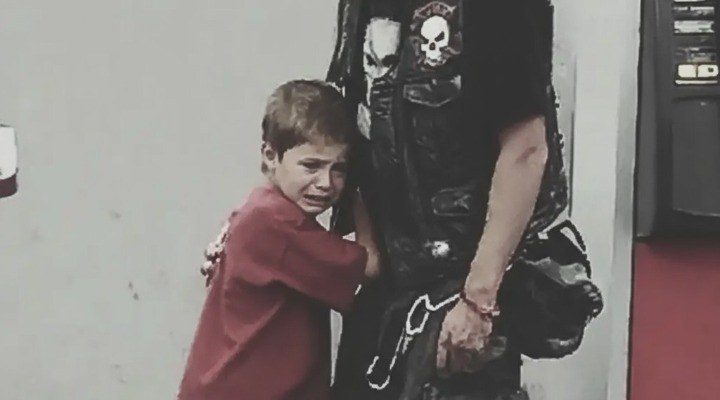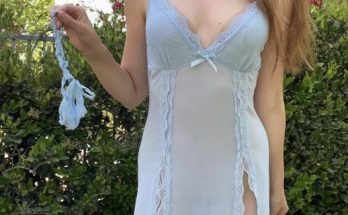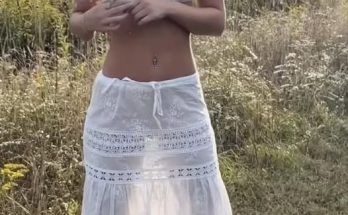The bruised six-year-old sprinted straight at me and blurted, “Please pretend you’re my dad before he finds me.”
I was topping off the tank at a Shell station, leather vest covered in skulls and service patches, when a kid in pajama bottoms and bare feet tore across the lot and folded himself behind my Harley, shaking like a leaf.
A pickup screeched in after him. The man who stepped out looked like any clean-cut suburban dad—fresh shave, polo, the Little League-and-church type—but the boy’s terror said otherwise.
“Where is he?” the man barked, walking up like he owned the place. “Where’s my son?”
“No idea,” I said, still pumping gas while the kid tried to disappear behind my bike.
“I watched him run here. That’s my boy, Tyler. He gets confused—has issues. Makes things up.” He pasted on a friendly smile. “Sorry if he’s bothering you. Tyler! Get over here. Now.”
The boy pressed tighter to the frame and whispered, barely audible, “He killed my mom. Cops don’t believe me. Please.”
I shifted so I stood squarely between the man and the Harley.
“Like I said—no kids,” I replied, flat as gravel. “Maybe try the McDonald’s across the street.”
A hairline crack split the man’s nice-guy act. “I know he’s here. I tracked his phone.”
“Phones get tossed,” I said, nodding at the dumpster. “Kids are sharp.”
That’s when three more bikes rolled in—my brothers from the Widowmakers MC, back from the late ride I’d bailed on: Tank, Preacher, and Ghost. All Vietnam vets like me. All men who can smell trouble a mile off.
“Problem, Hammer?” Tank asked, swinging off his bike—six-four, three hundred pounds, arms like tree trunks.
“Fella here lost his son,” I said evenly. “I suggested he look elsewhere.”
Four big bikers versus one suburban tough guy changed the math. The man’s tone softened. “It’s a family matter. I don’t want trouble.”
“Us neither,” Preacher said, stepping to the next pump and casually blocking his view of my bike. “We’ll fuel up and be gone.”
He stood there calculating, then turned for his truck. “If you see him, tell him his dad’s looking. Tell him his sister needs him home.” He drove off—but only across the street, where he parked to watch from the McDonald’s lot.
“He’s gone, kid,” I said quietly.
Tyler crawled out—pajamas torn and filthy. “He’s not my real dad. He married Mom two years ago. He… hurt her tonight. Bad. She told me to run. When I looked back…” His voice failed.
Tank crouched, face softening. “What’s your address, son?”
Tyler gave it. Ghost was already on a burner phone, calling 911 for a welfare check and reporting possible domestic violence.
“We’ve gotta get you safe,” I told the boy. “Police station?”
“NO!” he burst out. “He’s friends with them. They come to our house for barbecues. They won’t believe me. They never do.”
We traded looks. We’d seen this movie—systems that fail the people who need them most.
“There’s a diner six miles up,” Preacher said. “My cousin runs it. Cameras everywhere. Always crowded. Lots of witnesses.”
“I’ll take the kid,” I said. “You tail us. Make sure we’re not followed.”
Tyler stared at the bike. “On that?”
“Safest place right now,” I told him. “That truck can’t go where we can.”
I pulled out my phone and hit record. “Tyler, say you asked me for help and you want to ride with me. Say it clearly.”
He did—everything: the stepfather’s abuse, his mom hurt, his fear for his life. Evidence matters.
Ghost handed me his spare helmet—too big, but better than nothing. “Station cameras caught it all,” he added. “The kid begging for help. That guy acting threatening. The concealed piece under his shirt.”
As I lifted Tyler onto the bike, he whispered, “What if she’s dead? What if I left her to die?”
“You did what she asked,” I said. “You got help. That’s what brave kids do.”
We rolled out in formation—four bikes shielding one terrified child. The pickup tried to tail us, but we cut through a construction site and doubled back through an alley. He lost us.
At the diner, Tyler’s hands shook so hard he could barely hold his hot chocolate. The place was packed with truckers and night-shift workers—plenty of eyes.
“My phone,” he gasped. “He can track it!”
“Hand it over,” Tank said. He popped the SIM, then asked the cook to nuke the handset for a minute. “Not anymore.”
Thirty minutes later two cruisers arrived—state police, not local. Ghost had asked for them specifically, citing potential local conflicts of interest.
“Are you Tyler Morrison?” the female trooper asked gently.
He nodded, shrinking into my side.
“Your neighbor, Mrs. Chen, called us. She heard screaming and saw your mother taken to the hospital. She also saw you run and your stepfather chase you. Your mom’s alive, Tyler. Critical, but alive. She’s asking for you.”
Tyler fell apart. I held a kid I’d met an hour before while six years of fear poured out of him.
The trooper set a folder on the table. “Your mom’s been documenting. Photos. Recordings. Medical reports. She’s been building a case.”
“But Mike’s friends with—”
“Not with us,” the male trooper cut in. “And not with the D.A., who wants to know why the locals ignored multiple calls.”
They picked up Mike Patterson—respected insurance guy—three hours later as he tried to bolt with cash and a passport. The blood in the house filled in the blanks.
Tyler’s mother survived—barely, but she did.
At trial, four bikers testified about the gas station. Security footage showed Tyler’s injuries and panic, Mike’s menacing posture, the gun under his shirt. But the nail in the coffin was Tyler—steady, brave, telling a jury why he ran to the meanest-looking stranger he could find: because sometimes the scariest person is the safest.
Mike got twenty-five years.
While his mom healed, Tyler stayed with Mrs. Chen. The Widowmakers paid their medical bills—quietly, though Tyler figured it out.
A year later, they came to our charity ride. His mom walked with a cane, but she walked. Tyler wore a leather jacket I’d bought him—too big then; he’d grow into it.
“Thank you,” his mom said, crying. “He told me he ran to you because you looked mean enough to fight a monster and kind enough to help a kid.”
“Smart boy,” I said, ruffling his hair.
“I’m gonna ride when I’m older,” Tyler declared. “Help other kids like you helped me.”
“We’ll be here,” Tank said. “Widowmakers don’t forget family.”
That night, a six-year-old made the biggest bet of his life—trusting a biker over a clean-cut stepfather. He was right.
Sometimes heroes wear capes. Sometimes they wear leather, ride Harleys, and plant themselves between evil and a barefoot kid at midnight.
Tyler’s eighteen now. Just earned his motorcycle license. Rides with us every Sunday in that jacket he finally grew into. Says he wants to be a social worker for abused kids. Says he knows how it feels when nobody believes you and wants to be the one who does.
His mom remarried last year—to a good man. Four rough bikers sat in the front row with family, because that’s what we are now.
All because a terrified boy ran to the scariest-looking stranger and asked for help—and that stranger decided to be the man the kid needed.
That’s what bikers do. We stand up for people who can’t. Even if they’re barefoot six-year-olds in torn pajamas running from monsters in polos. Especially then.



